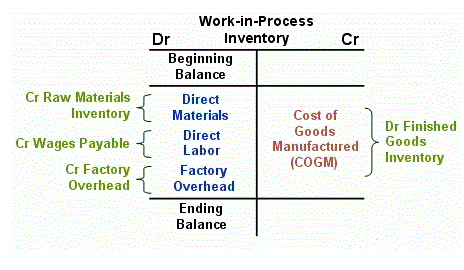Outsourced Accounting vs In-House: Which is Right for Your Business?

Ultimately, the optimal choice depends on the company’s size, industry-specific requirements, growth plans, budget, and risk tolerance. For companies with the resources to support a full-time team and ongoing projects, in-house development can provide significant benefits. If you’re looking for agility, specific expertise, or a short-term engagement, outsourcing may be the right fit. Bookkeeping is the systematic recording of your company’s financial transactions. It’s the meticulous process of tracking every dollar that comes in and goes out, creating a clear and accurate picture of your business’s financial activity.

V. Pros and Cons: Outsourced Accounting and In-House Accounting
Companies lacking accounting expertise or staff may find outsourcing advantageous. In contrast, businesses with skilled accountants already in place may opt for in-house accounting to leverage their internal capabilities. By leveraging these services, businesses can enhance operational efficiency, reduce costs, and access specialized expertise. Being compliant takes time and resources as these guidelines need internal changes to existing systems.
Hiring & Training Outsourced Accounting Firms
This analysis will analyze each approach’s direct and indirect expenses to help you find the most cost-effective choice. Combining creative flair with a solid foundation in research-oriented content marketing, Divya assists accountants in understanding and navigating pressing industry issues. With a knack for distilling complex data into actionable advice, she helps professionals make informed decisions to enhance their practices.
What are some key factors to consider when choosing an outsourcing provider for accounting services?
And, by hiring through Trio, you are not obligated to traverse the legal field. Here are some of the most commonly asked questions about the bookkeeping process. As a small business owner, you have three basic options when it in house accounting vs outsourcing comes to bookkeeping. The “monthly close” is the process of squaring everything up, checking the information in your books against bank statements, loan statements, and so on. This helps you spot any bookkeeping errors early as well as monitoring for fraud or theft. The role of a bookkeeper is relatively straightforward and organized around a basic set of tasks.

Businesses with ambitious growth and expansion plans may prefer outsourcing to accommodate changes in accounting needs without incurring additional hiring costs. On the other hand, companies with stable growth may choose in-house accounting for better control and alignment https://www.bookstime.com/ with long-term objectives. You can face zero communication challenges when it comes to internal accountants. But, outsourced or contractual employees work at their fixed schedules, which can make communication challenging for quick fixes or feedback. Effective communication with an outsourced accounting provider is crucial for successful collaboration.

Unity Communications
Read on, and find out how outsourcing works and what the benefits of outsourcing all accounting operations are. While outsourcing offers many benefits, potential risks include less control over financial processes and possible communication challenges, especially when working with teams in different time zones. Many CEOs and owners rely on in-house bookkeeping and accounting to receive their financial statements each month because it’s what they’re used to. However, with technology advancements in recent years, traditional is not always best when it comes to managing your company’s financial standing.

Long-term, complex projects with strict security needs may benefit from an in-house team, while short-term or skill-specific projects often make more sense to outsource. Outsourcing can offer cost savings, as you’re only paying for the services when you need them. If software and app development is a core part of your business, building an in-house team can be worth the investment. However, if your projects are sporadic, you may want to think twice before committing to this model.
- When you outsource bookkeeping and accounting, it frees up your own employees to carry out other responsibilities and tasks to perfection.
- Outsourcing can offer cost savings, as you’re only paying for the services when you need them.
- One of the biggest challenges for business owners is properly evaluating someone’s accounting skills without having a deep knowledge of accounting themselves.
- While the direct costs of in-house versus outsourced accounting bookkeeping are transparent, the indirect benefits and costs also play a critical role in deciding which approach is best for your business.
- The best way is to find an accountant who can help you with your accounting processes and provide accounting advice.
- While outsourcing offers many benefits, potential risks include less control over financial processes and possible communication challenges, especially when working with teams in different time zones.
Required Skills & Qualifications

Conducting technical interviews or code assessments for key team members allows you to verify their proficiency before committing to a partnership. Also, don’t hesitate to ask for references, as speaking with previous clients can help you understand the income summary provider’s strengths and any areas where challenges may have arisen. If you aren’t sure about a company, we’d recommend that you turn to platforms like Clutch or G2, which aggregate reviews and can provide objective feedback on the provider’s reliability. Reading client reviews, testimonials, and case studies can offer valuable insight into each provider’s track record and client satisfaction. To make sure that you choose a reputable outsourcing partner, start by researching outsourcing agencies with proven expertise in your field.
